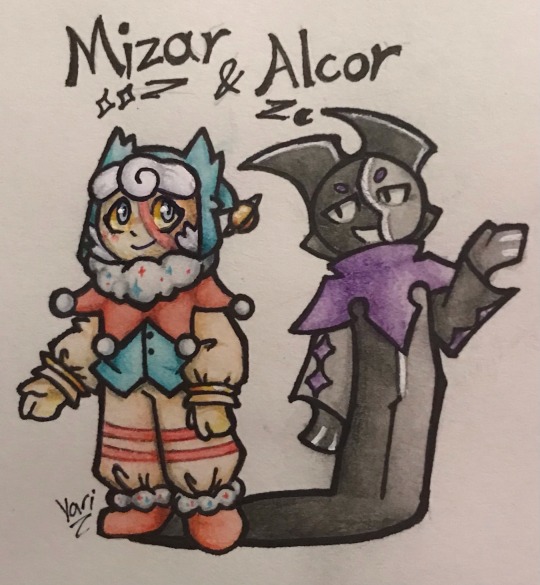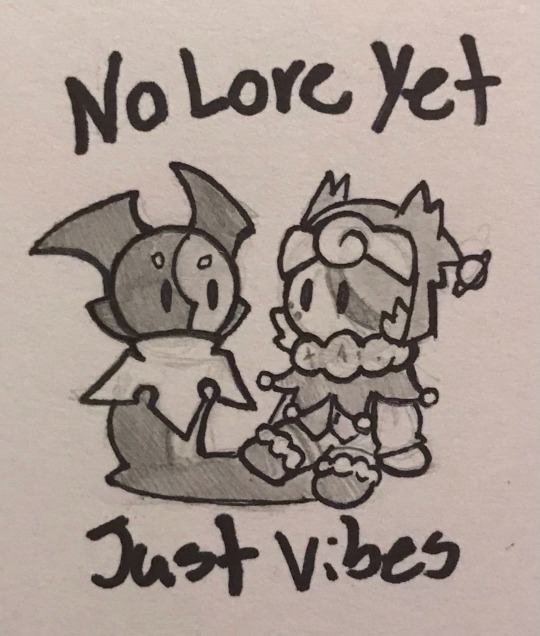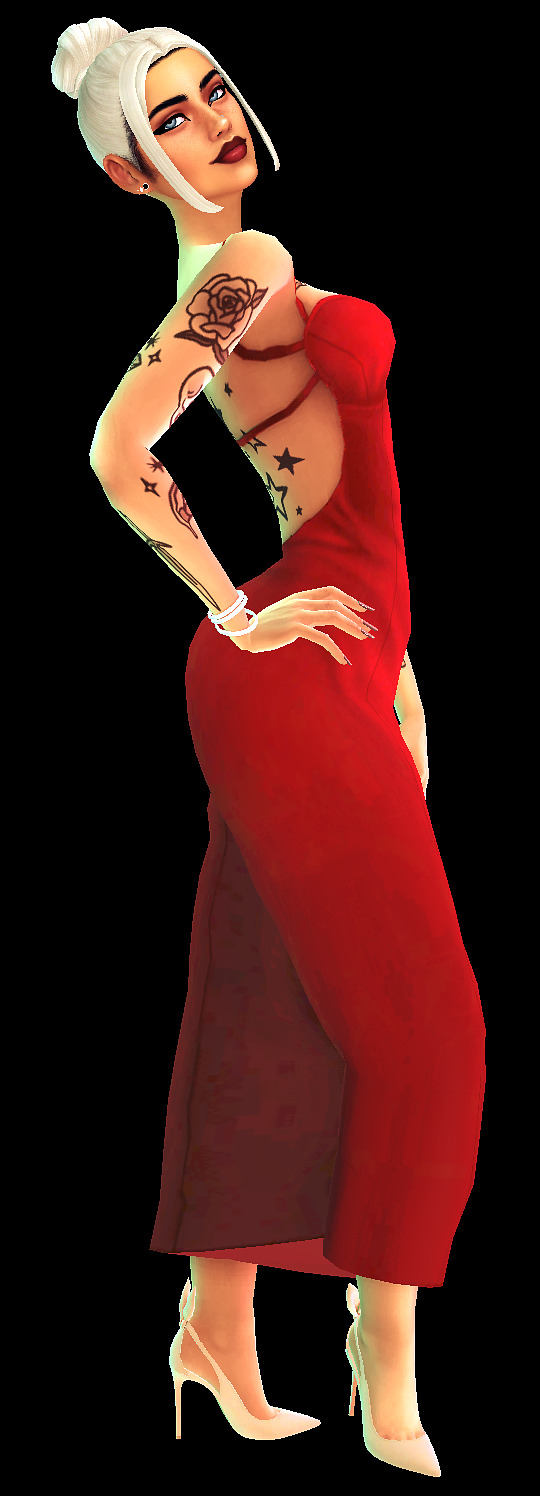#White House Mess
Note
What is the closest military base to the white house?
The White House IS a military installation.
It is the home and workplace of the Commander-in-Chief of United States military forces, so that alone makes it an important command and control headquarters. The various branches of the military have an active role in the everyday logistics of running the White House campus and supporting the Executive Office of the President. The White House's complex and extensive communications agency is staffed by members of each individual branch of the military. The U.S. Navy is responsible for the White House Mess and providing food services to the President, the First Family, any potential guests, and the President's staff. The White House Medical Unit is staffed by military doctors who have a round-the-clock presence in the White House and the official Physician to the President is usually an active-duty military officer.
While the Secret Service -- which includes the traditional plainclothes agents and the more visible uniformed division -- is responsible for protecting the President, his family, and the White House itself, the military also has a protective footprint in and around the White House complex. It's believed that amongst the White House's protective measures -- most of which are highly classified -- are anti-aircraft defenses, which are almost certainly manned by the military rather than the Secret Service. Marine Corps guards also are stationed at the White House (often seen opening and closing doors while manning the entry and exit points around the West Wing) as sentries and sometimes act as military valets during events hosted by the President in the White House. The role of the Marine sentries is purely ceremonial as opposed to protective.
And one of the most important White House responsibilities of the military is transportation. The White House Transportation Agency is responsible for all aspects of the President's travel, and the military works in tandem with the Secret Service on planning and carrying out the immense logistical challenges of transporting the President anywhere in the world -- a challenge magnified by the sheer size of Presidential traveling parties. A Presidential motorcade consists of, on average, 50-60 vehicles. And the majority of those vehicles actually have to be transported from the United States to wherever the President is traveling -- even if it is to several different foreign countries or continents. The Air Force is, obviously, responsible for the President's plane, along with any other aircraft making the trip which are usually carrying White House staff, members of the press, or cargo. For short distances that can be made by helicopter, the Marine Corps takes the lead. And any ground travel by motor vehicles is handled by the Army.
Security and the President's personal protective detail is always led by the Secret Service, but the military is responsible for many of the day-to-day logistics of the institution of the Presidency, which illustrates why the White House is an important military command and control base.
#White House#Presidency#Commander-in-Chief#U.S. Military#Military Bases#Military Installations#Command and Control#White House Communications Agency#Communications#White House History#Military History#U.S. Army#U.S. Air Force#U.S. Marine Corps#U.S. Navy#White House Mess#White House Transportation Agency#White House Sentries#U.S. Secret Service#Secret Service#Presidential History#History#Presidential Motorcade#Air Force One#Marine One#The Beast#Executive Office of the President#Presidents
25 notes
·
View notes
Text

Mick is proud after scattering hay across the room.
(He is shedding, and it's made some cool sideburns on his cheeks!)
#eyes of a criminal#bun#buns#bunny#rabbit#legoshi#mick#animals#pets#rabbits#companions#cute#fluffy#ears#big ears#brown rabbit#brown eyes#sock#white sock#hay#free roam#house rabbit#free roam rabbit#mess#crimes#criminal#cute animals
27 notes
·
View notes
Text

first houses in the new save!
#it took me 2 days to make these and they're still unfurnished 😩#and I want to build a castle? it's gonna take me months#to my defense it's because I'm very unfamiliar with this style and messing with the roofing was hard#the white house stayed true to a ref and I went a little bit wild on the red one 🧍🏾♀️#ts4#simblr#ts4 build
19 notes
·
View notes
Text

#gay#chronic illness#fe3h#fire emblem#fire emblem 3 houses#six of crows#kazzle dazzle#soc#soc ck#crooked kingdom#rwrb#red white and royal blue#books and reading#books#fandom#my feelings are a mess of fandoms#feelings
25 notes
·
View notes
Text
The Shocking Redemption Arc of Chester Arthur
To my great pleasure, I get to tell you about Chester A. Arthur. If you don’t know his story, that’s a surprising statement, because most people don’t even recognize his name as one of the presidents. That’s a crying shame, because this guy has the most fascinating character arc of any president I’ve come across so far. He entered the presidency as a despicable, corrupt, conniving political lackey, and left it as--
Well, I’d best get on with the story.
Chester Arthur started out as an idealist. He was the son of an abolitionist Baptist minister, and though he dropped the religion in adulthood, he remained devoted to abolishing slavery. He became a lawyer with a New York firm that argued several civil rights case, and he rose to fame in 1854 when he served as the defense attorney for Elizabeth Jennings, the Northern version of Rosa Parks. Arthur’s victory in her case led to the desegregation of New York City’s public transportation.
During the Civil War, Arthur got an appointment as New York’s quartermaster general. After the war, Arthur returned to civilian life and became a Republican “party man” who worked behind the scenes to draw in voters, funding, and supporters. He and his wife Ellen (called Nell) both loved the finer things in life, which drove Arthur to do whatever he could to gain fame, wealth, and social status.
This is where I need to explain the spoils system. For the first hundred-plus years of American politics, all federal positions were filled by appointment. When a new president came into office, he could award government positions to his supporters--"to the victor go the spoils". Federal employees were required to donate money to the ruling party. There were no requirements for education or relevant experience. Any job could be filled by anyone with the right connections. If you think that sounds like a breeding ground for corruption and cronyism, you’d be absolutely right. By the 1870s, the system was getting extremely corrupt, and there was a growing push for reform.
But not by Chester Arthur. He owed his career to the spoils system. Through his work in the party, he became the right-hand man of Roscoe Conkling, New York’s senior senator and the state’s “political boss”. Conkling was a flamboyant showman, a magnetic politician, and a ruthless man. He had been a major supporter of Ulysses S. Grant’s presidential campaign, so Grant gave Conkling control over all the federal appointments in New York. Conkling used his power to fill positions with his friends and supporters, and he was brutal in attacking anyone who got in his way.
Because Chester Arthur was Conkling’s most loyal supporter, he got the best federal job in the country—Controller of the Port of New York. Before income tax, around 60-70% of federal funds came from the tariffs at this one port. The controller got a salary similar to the president’s, plus he was able to take a percentage of all the fines they levied. At the height of his power, Chester Arthur made $50,000 a year, which is a lot when the average skilled worker at the time made $500. (A rough estimate puts his salary at $1.3 million in today’s dollars.)
Arthur was living the high life. He racked up huge tailor bills. He had a gorgeously furnished house. His job allowed him to force his employees to donate a percentage of their salary to the Republican Party, which gave him even more power within the political machine. He bought huge amounts of wine and cigars that he handed out to people he was wining and dining for the good of the party. His wife resented that he was rarely home because of his political work, but Arthur loved the machine too much to stop.
After his 1876 election, President Rutherford B. Hayes desperately tried to reform the spoils system, but was blocked every step of the way by Roscoe Conkling. Finally, in 1878, Hayes managed to remove Arthur from his position as port controller, under suspicion of corruption, which allowed Arthur to spend more time working for New York’s political machine.
In January of 1880, Arthur was in Albany working for a political campaign when his wife caught pneumonia. By the time Arthur got home, Nell had fallen into a coma, and he wasn’t able to speak with her before she died. He felt guilty over her death, and especially the lack of closure caused by his devotion to politics. But instead of changing his ways, Arthur moved in with Conkling and became more devoted to politics than ever.
Which brings us to the 1880 Republican Convention. The Republican Party was split between two warring factions—the Stalwarts like Conkling who wanted to keep things the way they were, and the Half-Breeds who wanted civil service reform. President Hayes refused to seek re-election (partly because Conkling had made his life miserable) so these two factions somehow had to agree on a new candidate. Conkling supported a third term for Ulysses S. Grant. The Half-Breeds supported James G. Blaine of Maine—who happened to be Conkling’s mortal enemy.
James Garfield was there to nominate John Sherman—the Secretary of the Treasury and the younger brother of the famous Civil War general—and I can’t go any further in this story before I tell you a little bit about him. James Garfield is one of the most ridiculous overachievers in the realm of American politics. He was born into a dirt-poor farming family (he’s the last president ever to have been born in a log cabin). At sixteen, he left home to work on a canal boat, but quit after he nearly drowned, and his mother and brother scraped up enough money for him to go to school. His first year, he paid for his tuition by working as a school janitor. His second year, the school hired him to teach six classes (while he was still a student!) and then added two more because of how popular he was. By the time he was twenty-six, he was president of that same school. He became a lawyer and was elected to Ohio’s state legislature. During the Civil War, he became the youngest person to earn the rank of general. While fighting in the Civil War, his friends put his name in as a candidate for the US House of Representatives, and Garfield won even though he refused to campaign. He then served several terms in the House, where he became popular, but he refused to seek the presidency, because he’d watched several friends become warped by their presidential ambitions.
At the 1880 Republican Convention, Garfield was the more popular Ohio candidate, but insisted he was there only to nominate Sherman. At one point in his nominating speech, Garfield asked the audience, “Now, gentleman, what do we want?” To Garfield’s horror, one man shouted, “We want Garfield!”
Garfield remained loyal in nominating Sherman, but the spark had been lit. The voting went round after round after round for two days, with the votes being split between Grant, Blaine, and Sherman, with no one getting enough to win the nomination. Garfield got one vote in the third round. In the thirty-fourth round, Garfield suddenly got seventeen votes. Garfield stood to protest, saying no one had a right to vote for him since he hadn't consented, but the president of the convention--who was secretly thrilled because he liked Garfield more than any of the other candidates--told Garfield to sit down.
By the thirty-sixth vote, Garfield had won the nomination.
Now they had to choose a vice president. Several of the delegates got the idea to throw a bone to Roscoe Conkling. He was furious that Grant had lost the nomination, and he was vindictive. Conkling controlled New York’s political machine, so without him, the Republicans would lose New York, and without New York, they’d lose the election. He had to be placated. So the delegates nominated Chester Arthur, his right-hand man, as vice president.
Conkling told Arthur to refuse the nomination, but Arthur accepted, saying it was a greater honor than he had ever hoped to achieve. That's putting it mildly. The only position he’d ever held was port controller, and he’d been removed from that. Plenty of people thought nominating him was a horrible idea—a man like Chester Arthur only one step away from the presidency? But other people thought it was a shrewd political move—it would placate Conkling’s faction of the party, and Garfield was young and healthy and would rule in a time of peace. It wasn’t like there was any chance he’d die in office.
After Garfield was elected, Arthur immediately started causing problems. He all but openly boasted of buying votes in the election—which was not a great look when it had been a close race. He was completely on Conkling’s side in his war against Garfield. After Garfield appointed Levi Morton, a Stalwart, as Secretary of the Navy, Conkling sent Arthur and another lackey to drag Morton out of his sickbed--forcing him to drink a bracing mixture of quinine and brandy--and bring him to Conkling’s house to get chewed out, which caused Morton to resign. Conkling forced another Stalwart Cabinet nominee to resign on inauguration day.
Then Conkling went to war over the federal appointments. At first, Garfield placated him, appointing several of Conkling’s candidates. But then Garfield nominated Judge Robertson as Port Controller of New York Harbor. Conkling was livid. That was the prime federal position, a major source of Conkling’s power in the party, and Robertson was one of Conkling’s political enemies. In Conkling’s mind, Garfield had stabbed him in the back. Arthur agreed, and openly bad-mouthed the president to the press.
Conkling and the other New York senator resigned their Senate seats in protest—a dramatic political move. In those days, state legislatures voted for senators, and Conkling believed that since he controlled so many New York politicians, they’d easily get re-elected to their old seats. Unfortunately, the legislature was sick of being under Conkling’s thumb. The election became a drawn-out battle, and Chester Arthur went to Albany to help Conkling in his campaign.
While he was there, the unthinkable happened. On July 2, 1881, James Garfield was shot at a train station by Charles Guiteau, an insane office-seeker. Guiteau had come to the White House every day for months seeking an appointment under the spoils system. When that failed, he decided God wanted him to get Garfield out of the way so the spoils system could continue. After he shot the president, Giteau shouted, “I am a Stalwart, and Arthur will be president!”
As you can imagine, that made things really bad for Arthur. He’d just spent months fighting the president tooth and nail, and the assassin had mentioned his name. Plenty of people thought Arthur had something to do with the shooting. He and Conkling both needed police details to protect them from lynch mobs.
Arthur didn’t want to be president; in his mind, vice president was the perfect job—a position with a lot of political leverage, but no responsibility. He went to the White House hoping to convince Garfield that he had nothing to do with the shooting, but the doctors wouldn’t let him in the room. He managed to speak to the First Lady, where he got choked up with emotion and was observed to be in tears. A reporter later found him in the house where he was staying in Washington, and noted he'd obviously been weeping.
To Arthur’s relief, Garfield seemed to get better. The bullet had missed his spinal cord and all his major organs. If he’d been left alone, Garfield would have made a complete recovery. Unfortunately, his doctors repeatedly prodded the bullet wound with unsterilized instruments, and Garfield fell victim to a massive infection. He lingered for months, slowly starving and rotting to death.
Through all this, Arthur stayed in New York and refused to take up presidential duties; with so many people accusing him of the assassination, he didn’t want to make it look like he was preparing to usurp the throne.
It eventually became clear that the assassin had acted alone, which laid the rumors to rest, but no one wanted Arthur to be president. James Garfield had been a man of the people. The working class considered him one of their own, proof that anyone could rise from poverty and become president. He was an idealist, a champion of civil rights, a family man who lived modestly. For the first time since the Civil War, a president had been supported by both the north and the south, and the country had come together in grief. Chester Arthur was Garfield’s exact opposite—a conniving political lackey who’d become a millionaire through corruption.
James Garfield died on September 19th. To the American people, it looked like their worst nightmare had come true. Conkling’s lackey was in the White House, and now Conkling would rule the nation the same way he’d ruled New York.
Yet, to everyone’s surprise, President Chester Arthur became a completely different man. In one of his first speeches, he listed civil service reform as one of his top priorities—a shocking move for a man who’d become president through the spoils system. Soon after Arthur’s inauguration, Conkling demanded he name a new Controller of the Port of New York. Arthur angrily refused and called Conkling’s demand outrageous. Conkling stormed out in fury and never forgave Arthur. (Arthur did later risk his reputation to nominate Conkling for the Supreme Court, but Conkling, ever petty, refused the position.)
Arthur didn’t have a complete personality transplant. He still lived lavishly, hosting lots of state dinners. He still preferred the social duties of the presidency to actual government work, and he was a hopeless procrastinator. Always fastidious, Arthur refused to move in to the rotting, rat-infested White House until they fixed up the dump, and he ran up extravagant bills during the remodel.
Yet, as a president, he was...respectable. He worked for African-American civil rights. He started a major process of rebuilding and reforming the outdated and corrupt navy. He did sign the Chinese Exclusion Act, but he had vetoed an earlier, harsher version and only signed a much-reduced one (that probably would have been voted in anyway if he’d vetoed it). That remodel of the White House, even if it ran over-budget, was long overdue.
Most shocking of all was his unswerving devotion to civil service reform. He continued an investigation into a government postal scandal, even though everyone assumed he’d drop it. He voiced his continuing support for reform efforts. In 1883, Arthur signed the Pendleton Civil Service Reform Act. As written, the act required only 10% of federal jobs to be assigned based on merit, and even that required the president to take action to enforce it. People assumed that Arthur would sit back and do nothing, so the spoils system would remain in place. Yet Arthur immediately formed a commission to enact the reform, even appointing some of his old enemies. The man who’d benefited most from the spoils system became the one to finally destroy it.
How do we explain such a complete and sudden change? Part of it’s a matter of personality. If I can indulge in a bit of meta, Chester Arthur seems to be a textbook example of the sanguine-phlegmatic temperament—someone who wants to fit in with the crowd, to go with the flow. As a political lackey, this made him self-serving and amoral, but as president, the crowd he had to impress was the American people. After months of getting crucified in the press, with tons of articles saying what they didn’t want him to be, he’d have plenty of motivation to become what they did want him to be.
A more important motivation, though, was death. His wife’s death was likely the first shock that would make him step back and take stock of his political career. Garfield’s death had an even more profound influence on him. The spoils system had led a madman to murder a president in Arthur’s name; if anything could motivate a man to change the system, that would be it. Even more profound than that was his own death. Not long after entering the White House, Arthur was diagnosed with a fatal kidney disease. He hid the diagnosis during his term, but his actions in office were the actions of a man doomed to die, with a mind toward the legacy he’d leave behind.
Yet there’s another stranger, more mysterious influence that I’ve left to last because of how cool the story is. The day before his death, Chester Arthur—who’d become ashamed of his old life—asked a friend to burn the vast majority of his papers. Years later, among the papers that had been spared, his grandson uncovered a packet of twenty-three letters from a 31-year-old invalid named Julia Sand. Julia came from a family very interested in politics, and her illness meant that she spent a lot of time reading the newspapers, so she was familiar with Chester Arthur’s political career. In August of 1881, she sent Chester Arthur a letter that began, “The hours of Garfield's life are numbered—before this meets your eye, you may be President. The people are bowed in grief; but—do you realize it?--not so much because he is dying, as because you are his successor.” Over seven pages, Julia scolded Arthur for his corrupt ways, but assured him of her faith in his better nature, and urged him to reform. She sent letters over the next two years, full of encouragement and scolding and political advice. She called herself his “little dwarf”, because her lack of ties to him meant she could be completely honest with him.
There’s no evidence he ever answered her. But she did offer some rather specific political advice that he seems to have followed. And he did visit her once. In 1882, he stopped by her house in the presidential carriage, surprising her and her family (who had no idea she’d been writing to the president) with an hour-long visit. She seemed to grow more frustrated with his lack of answers after that, and no letter exists after 1883.
There’s no way to say what kind of effect the letters had on him. But amid all the turmoil after the assassination, it must have meant something to have one voice saying she believed in him. She was a voice from outside the Washington political machine, who could serve as a sort of conscience. The fact that those letters survived when so much else burned suggests he considered them worth saving.
No matter the reason, the truth remains that Arthur entered the presidency as an example of all that was dirty and loathsome in the political system, and he left it as a respectable man. In giving up his old ways, he sacrificed connections he’d spent years building. His old friends never forgave him, and his old opponents never quite trusted his reform, yet he did what he thought was right even if it meant he stood alone. In summing up his presidency, I don’t think I can do better than contemporary journalist Alexander McClure: “No man ever entered the Presidency so profoundly and widely distrusted as Chester Alan Arthur, and no one ever retired... more generally respected, alike by political friend and foe.” I think that deserves to be remembered.
#history is awesome#presidential talk#i apologize but i really can't see any way to cut this down#i like the detour into garfield's nomination#i can't cut conkling out any more than i have#i can't leave out his wife#i didn't even mention that he was washington's most eligible bachelor during his term but he remained faithful to her memory#or that his sister served as hostess at the white house and helped raise his daughter (who he protected from the press as best he could)#or that he did make a half-hearted attempt to seek re-election so people wouldn't think he was slinking off in disgrace#and there was some support for him#but he didn't mind at all when someone else was nominated because he was dealing with his kidney disease#and he died in 1886#which means he had the shortest post-presidency life of anyone except james k. polk who died three months after leaving office#i did not come into last week thinking that by the end of it i'd have developed a minor specialization#in the presidency of a guy i knew only for his facial hair and his half-verse in the animaniacs song#i didn't even mention the facial hair!#go to wikipedia and see his glorious muttonchops!#say what you will about the victorians but they had wild facial hair game#but anyway here is the life story of my impeccably dressed trash panda son#who is put together on the outside and a mess on the inside#and still manages to maintain a certain dignity despite how pathetic he is#he's a mess of a human being but i love him your honor
31 notes
·
View notes
Text
I now have my own Star children and I love them so much!

They were so fun to design! There a par twins were only one of them has a physical form.
Some fun facts
Mizar her colours were based on various pictures of Saturn
There named after real life twin stars (know as Binary Star) that you can find in the Big Dipper
Also Bonus doodle

#my artwork#toh oc#collector oc#the owl house oc#so glad I was able to save this because I messed it up when colouring originally#white paint can be a life saver#i will draw more of them
51 notes
·
View notes
Text
This white liberal USAmerican nightmare used Perfume Genius's version of Can't Help Falling In Love WTFFFFF that is Alexis Hall's give it back!!
Luc and Oliver sweetie I am so sorry I can't believe an ugly ass cis het bootlicking bitch like Berlanti would even do that to you
#it wasn't enough for this book to be a white liberal USAmerican mess or for the movie to be two hours of racist microaggressions#they have to go and rob everything else i hold queer and dear#BERLANTI I AM COMING TO YOUR HOUSE WITH A BAT#anti greg berlanti#it could be worse. hollywood might have tried to adapt Luc and Oliver#if Berlanti goes anywhere near Alexis Hall's work I am personally killing him#anti rwrb#anti rwarb#alexis hall#boyfriend material#knee of huss
12 notes
·
View notes
Text
Oh here come the I acknowledge that Nettles is f*ckable, but I refuse to admit that she’s also lovable cause she still has to be second best to my Valyrian queen “fans” 😒

#y’all are racist weirdos too#protect nettles from this fandom ✊🏽#house of the dragon#hotd#nettles#hotd spoilers#nettles tag is always a mess🤦🏽♀️#dattles#daemon x nettles#if she were white we wouldn’t be having these conversations#she’s either a child or a wh*re to be used in you guy’s minds#bncommentary#hotd commentary
13 notes
·
View notes
Text



brooklyn najera for @latteaki's too hot to handle! 🍒
oh man - i originally had so many ideas for this challenge, i'm not gonna lie. but i thought about it and i thought it would be fun as hell to throw my personal gameplay sim, brooklyn, into the mix! she is as mid-2000s yt girl sim as she could possibly be, obnoxious tats and all, and i love her to death!
and yes she's the gp sim that's marrying jacques for inheritance money but shhh shh he doesn't need to know
full name: brooklyn najera
age: 27
aspiration: master mixologist
hood: san myshuno
traits: party animal, outgoing, hot-headed
favorite drink: long island iced tea (basic ass bitch the game chose this for her and i love it so i'm includin it)
this girl has no ulterior motives going into this show, that's for sure. brooklyn najera's life up until now could fit nice and snugly into the "going with it" category. no decision she's made has been one she can confidently say she's made herself - from her career to her apartment to her little pomeranian boomer, everything in her life has either fallen into her lap or just sort of... worked out.
while her ultimate goal in life is to make great drinks that open people's minds and palates, brooklyn doesn't have much of anything else in regards to the whole "life" thing figured out. she has friends, sure, and she loves going out on the weekends, who doesn't? she's had her share of hook-ups, of failed connections and heart breaks, and has ridden through them all with a shrug and a tip of the glass.
but what better chance at feeling like she's actually done something for herself than signing up for a... dating... show? is it a dating show? is it a competition? is it even fair if the host is so hot? whatever the case, brooklyn wants to find out for herself if a show like this could actually be legit -- there are only so many failed meet-n-mingle dates a girl can go on.
(oh, and did we mention, this girl fell for mortimer goth and was surprised when he didn't leave his wife for her? she's Gone Through It.)
this girl literally finished the "mix 10 drinks" aspiration by herself, her number one autonomous action is making drinks (and then consuming them)
knows all the words to the opening of "where's my juul"
don't ask her about her stint as a minor crimelord, it was only for like four weeks and she didn't even go half the time okay
will genuinely be your best friend behind the bar, and believe me if you're nice you will get the best drinks ever
will go live on simsta when she's crossfaded and mix custom drink requests
for some reason has a level 10 fitness skill and will kickbox absolutely anything. if there's a punching bag she will beeline for that thing.
i just want to say that i am so excited to read this challenge regardless of whether or not brooklyn is chosen! the rules are fantastic and i can tell you've put so much time into planning this! i can't wait to see what happens!!
#ts4#ts4 edit#ts4 cas#ts4 screenshots#ts4 too hot to handle#latteaki#sim: brooklyn#i love herrr your honourrrr#can i get five more of them lil white bitches hoo boy i am not creative but#she is genuinely my personal gp sim and i am biased so i love her little messy ass to death#i am so excited for this challenge and i can't wait for everyone's entries!!!#i am already dyin over what i've seen so far dkfkdfhs#i hope you like her!! she's an absolute mess and i love her#fun facts abt her gameplay:#she hooked up with mortimer goth / victor feng / penny pizzazz / don lothario / AND marcus flex#mortimer she actually cared for but he wasn't about to leave his wife for her and when bella had a new baby brooklyn broke up with him#victor is a fuckboy supreme and will never leave his wife but will HAPPILY cheat on her so brooklyn cut him off#penny was her neighbor and best friend until they got drunk and started hooking up (booty calls at night yknow)#don was actually brooklyn's first hook up but then he MARRIED PENNY OUT OF NOWHERE#and marcus found boomer when he was lost after morty guilt-bought brooklyn a house in tartosa and when she tried to get together with him#for the inheritance#he was ALREADY MARRIED TO MILA MUNCH#its canon everywhere @aigunthermunch#so now she is LOOKING FOR LOVE TO SAY THE LEAST
28 notes
·
View notes
Text
I want to see Maggie without her bullet for a long period of time. I wanna see how it goes whether she freaks out, lashes out at everyone, and/or has a complete meltdown. Then I want to see everyone else's responses and the ppl that care Abt her helping her out while she is Not Okay TM and then they find out the significance of the bullet to her and give their sympathies and Maggie can't really bat them away like she normally would since being without her lucky silver bullet is nerve wrecking because who is she without that bullet she's alive because of it-
So what if Callum learned abt the bullet b4 anyone else
#i need to write this fic#like imagine it's before nova joins and a little bit after maggie joins#and she meets callum#finds him annoying#down right intolerable whenever she has to see him#and then her bullet goes missing and she completely melts down#then callum comes in and is so fucking patient in a way other renegades weren't#maggie normally pushes ppl away (my headcanon) they complicate her goals of survival and self interest#but rn maggie just. needs someone. and lets him help and depends on him. Callum gets to see how maggie really is just a kid#they find out some renegades stole the bullet to mess with maggie and they get it back#maggie is a little shaken afterwards since at this point i think shed have less walls down compared to beginning of canon#transitioning from this hopeful orphaned prodigy to annoying jaded turd not interested in anyone but herself#but Callum is allowed in that very personal bubble for a little before she recovers and is like#“if you tell anyone abt this i will burn your house to the ground.”#callum: yes mam#renegades trilogy#maggie white#evie artino#callum treadwell#adrian i think would also be supportive if he were there but i think hed be gone on a mission or smthn#renegades fandom#renegades brainrot#marissa meyer
4 notes
·
View notes
Note
Why are there Marines helping to guard the White House? Isn't that the job of the secret service?
Yes, the Secret Service is responsible for the personal protection of the President and his family, and they take the lead in doing so in the White House just as they do outside of the White House.
But the White House is also a vitally important military facility, so the military has a significant presence there as well. The President is Commander-in-Chief of all American armed forces and the Situation Room is obviously staffed by the military, as are the White House's emergency bunker. And, of course, the President always has a military aide nearby with the "football" briefcase required in case of nuclear war. The U.S. Army is responsible for handling the White House Transportation Agency and the travel logistics for the President and his Administration. The U.S. Navy runs food services at the White House Mess (I believe that military aides also do any necessary grocery shopping for the President and First Family -- the President is personally responsible for actually paying for his family's regular groceries). All of the service branches of the military help run the White House Communications Agency, both in the White House itself and whenever/wherever the President is traveling. The President's personal physician and most of the White House Medical Unit are usually active-duty members of the military.
So, yeah, the Secret Service doesn't stop protecting the President just because he's at the White House, but the part played by the military in day-to-day logistics at the Executive Mansion is significant because the White House is basically a military base in addition to being the President's residence and place of work.
#President#Presidency#History#White House#White House Military Office#U.S. Military#U.S. Army#U.S. Navy#U.S. Air Force#U.S. Marine Corps#White House Transportation Agency#White House Mess#White House Medical Unit#White House Communications Agency#Situation Room#Secret Service
18 notes
·
View notes
Text
What the fuck is going on?

#bb25#the house is a mess#the tags are a mess#I am literally scared#also no offense truly but white people are so scary to me 😶🌫️
7 notes
·
View notes
Text
when ppl who like the huntlow ship post about “all the crumbs” in the show which include cutesy scenes but are mostly just screenshots where theyre in the same frame but most of the time gus is also in the frame and interacting with either hunter or willow more than theyre interacting with each other so ppl just poorly crop gus out of the screenshot
#toh#the owl house#huntlow#hunter toh#willow park#gus porter#when ppl do this with any characters i either find it really annoying or really funny#i like the huntlow ship the way i like most of my ships#where they go through half a decade of angsty pining on either side but at different times#and hunter realizes he still has to recover from ptsd and willow realizes she still has to get better self esteem#so being in a relationship before they do that would be a huge mess that will destroy their friendship which they care way more about#idc if theyre endgame in canon but they gotta address hunters issues with authority figures and give willow a reason to be into him first#and the way most of the fandom portrays it makes me feel iffy bc it reduces both of them down to either#angsty white boy ya love interest number 82374023840238 and his arm candy#or rough and aggressive Strong Female Character and her woobie simp who needs his girlfriend to protect him from anything that moves#not to mention how im uncomfortable with how people see hunter a victim of child abuse respect willow for her strength#and say willow wouldnt be scared of him because she could defend herself from him#and interpret that as 'hunter wants yet another authority figure in his life to physically abuse him but now hes into it bc its willow <3'#idk maybe i just have a Very Specific Way of shipping the huntlow ship and anything too sweet or out of character just rubs me the wrong wa#but anyway because i like the huntlow ship but no not like that#this is one of the rare occasions where i find it both incredibly annoying and incredibly funny at the same time#oh and dont think i dont see you guys disregarding the arguably closer relationship gus has with both willow and hunter#yeah yeah the actual scenes where hunter has a crush on willow are cute#but we all know if either of them were dark skinned or if they were both girls or even dark skinned boys#you guys would not go this crazy over the ship#shut up pandora#lowhunt
62 notes
·
View notes
Text
aaron "repressed bisexuality" hotchner

#yes this is about him and john blackwolf#he messed around with boys in his teens#i'm hung on the 'theory' his dad was abusive#he felt the need to hide it from him specifically so just.... never really processed it#then met mizz brooks#settled down did the wife house 2.5 kids white picket fence thing#and then ran into john (cue the taylor swift music)#and i think just sort of... learned to accept himself from there knowing it couldn't be lorded over him as a bad thing anymore#i FULLY believe in between the death of mizz brooks and dating then breaking up with beth he at LEAST went on dates with men#bisexual!!!#aaron hotchner#criminal minds
4 notes
·
View notes
Text
listening to Slipping Through My Fingers. sobbing over Luz and Camila again.
#GAHH THEIR MOTHER DAUGHTER DYNAMIC IS EVERYTHING TO ME.#ngl I think that there's a few Latinos on the crew because they got their issues SPOT ON. ESPECIALLY IN TTT AND FTF AND YL.#IT'S ABOUT THE ACCEPTANCE AND LOVE EVEN AFTER MESSING UP BECAUSE OF SOCIETY FILLED WITH WHITE PEOPLE TELLING YOU HOW TO PARENT#I HAVE. SO MANY WORDS. TO DESCRIBE HOW MUCH THEY MEAN TO ME AND HOW WELL THEY WERE DONE TOO.#but can't get words straight right now lol.#the owl house#luz noceda#camila noceda
10 notes
·
View notes
Text
FINALLY HOME!!!!!! WOOOOOOO!!!!!!
#doesnt stop me from having to pick up after my sibs cuz they left the house a mess#in true white fashion
2 notes
·
View notes